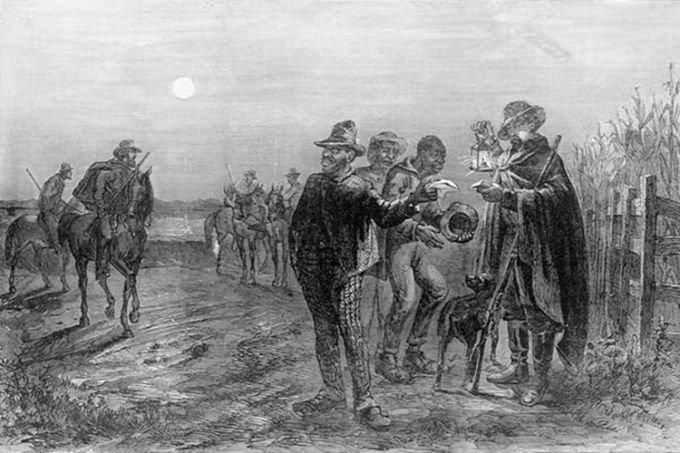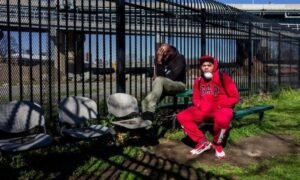
Origin of 'slave hunting' of American police 2
Anti-racism protests broke out across the United States late last month after black man George Floyd was pinned to death by police in Minneapolis.
In the southern states of America, police derived from slave patrols, squads of white volunteers who tracked down and recaptured escaped slaves, suppressed slave uprisings, and
Painting of patrols checking slaves’ passports in the 19th century American South. Photo: Corbis.
Slave patrols were established in South Carolina in the early 1700s, then appeared elsewhere, legalized through the Fugitive Slave Law, which required the return of all escaped slaves.
Slave patrols could enter anyone’s home, regardless of race or ethnicity, if they suspected that they were sheltering escaped slaves.
The slave patrol was not built to ensure general public safety but to protect white wealth, said Seth Soughton, a professor at the University of South Carolina School of Law who was a police officer in Tallahassee.
Slavery was abolished in 1865 by the 13th Amendment at the end of the American Civil War.
The 14th Amendment was passed in 1868, making former slaves equal to everyone else before the law, making the “colored code” illegal.
This law institutionalized economic, educational, and social segregation for African Americans, segregating public schools, public places, public transportation, restrooms, restaurants, and drinking fountains between

Police were deployed to ensure a curfew in New York earlier this month.
During this period, “lynchings” (mobs killing people they believed guilty without trial) of African Americans were very common and the perpetrators went unpunished.
The justice system does not hold police accountable for failing to intervene to save murdered black people, nor responsible for their own acts of violence.
One of the violent events during this period was the Tulsa race massacre of 1921. White mobs attacked people of color after a 19-year-old black shoe shiner was accused of attacking a 17-year-old white girl
After World War II and the rise of the civil rights movement, Jim Crow laws were ended in 1964, when the Civil Rights Act was passed.
Isaac Bryan, director of UCLA’s Black Policy Center, said that racist roots are one of the reasons he supports protesters’ demands: defund or disband the police.
`People often look at contemporary issues without understanding that all that is happening is a continuation of 400 years of injustice,` Cobbina said.






